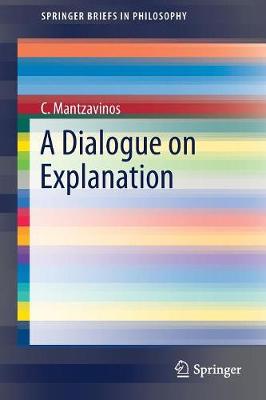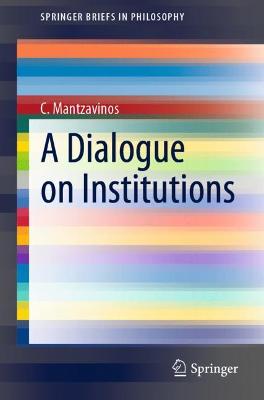SpringerBriefs in Philosophy
2 total works
This book introduces a panorama of the philosophical theory of explanation. Written as a philosophical dialogue between two interlocutors, Philip and a student, it presents a defense of the position of explanatory pluralism.
The fictional dialogue takes place on Cape Sounion, near Athens, where the two interlocutors are enjoying the view over the Aegean Sea. An initial exchange of arguments leads to a dialogue unfolding the development of the contemporary philosophical theory of explanation. The second part of the dialogue is devoted to an exchange of arguments on explanatory pluralism as a novel approach to the philosophical theory of explanation. The two also discuss historical cases as well as the ways of achieving explanatory progress in science.
We are all philosophers and we develop our own philosophy by exchanging views and arguments. The dialogue form is and should remain the principal form of philosophizing, since ideas do not merely exist - they develop. This is certainly the case in real-world philosophical interaction, and as this book aptly demonstrates, it can also be the case in written philosophical exposition.
This book consists of a dialogue between two interlocutors, Pablo and a student, who discuss a great range of issues in social philosophy and political theory, and in particular, the emergence, working properties and economic effects of institutions. It uses the dialogical form to make philosophy more accessible, but also to show how ideas develop through intellectual interaction. The fact that one of the interlocutors is the "student" in a place in the real world makes the dialogue quasi-fictive in character and enables the active engagement of the reader. After all, we are all philosophers and we develop our own philosophy by exchanging views and arguments. The dialogue form is and should remain the principal form of philosophizing, since ideas, like butterflies, do not merely exist - they develop. This is certainly the case in actual philosophical interaction, and it can be the case in written philosophical exposition. Although the dialogue does not presuppose prior acquaintance with the respective philosophical and social scientific literature under discussion in this book, it makes arguments more accessible, and conveys the feeling that there are no definite solutions to philosophical problems.

